Plant-based Milk
Guide to Homemade Dairy-Free Milk
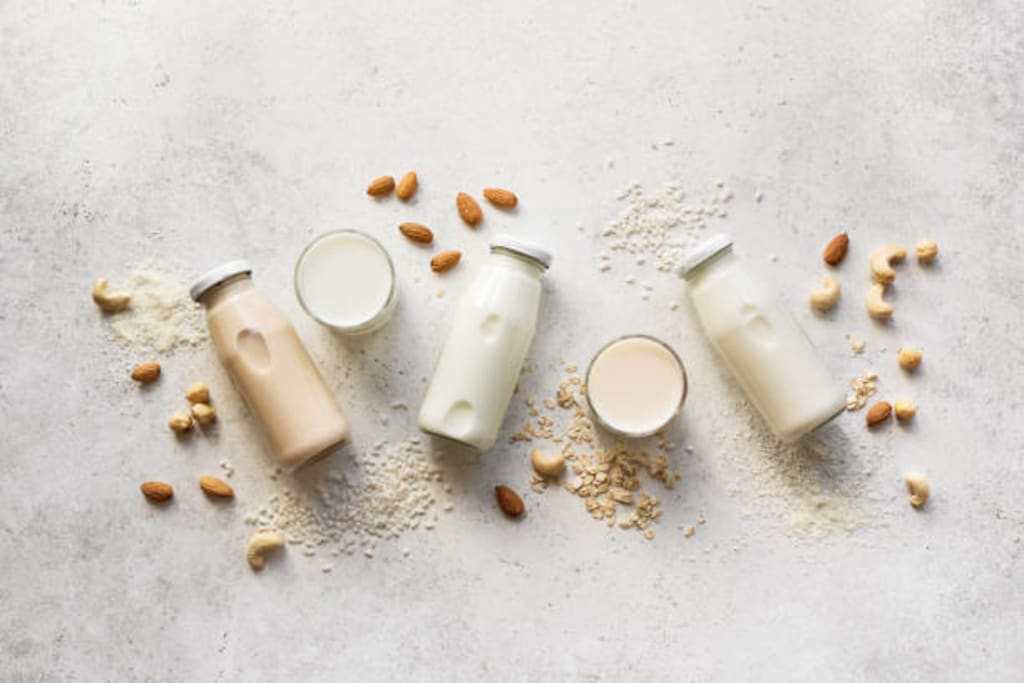
Plant-based Vegan Milk
You can replace your dairy with plant-based milk. Why not make the switch. I know it's easier said than done especially when you live in a time and place where cappuccino, mocha, iced coffee, chocolate milk, blizzards and smoothies are the order of the day. But it does not have to change entirely, just replace the dairy milk with plant milk.
Plant-based milk or Vegan milk is a lactose free substitute to the common cow milk. It's made from a wide variety of seeds, nuts, grains and beans.
Benefits of choosing Plant-based Milk:
There are a few motivations to change to this plant based option. The most pressing reason is being lactose intolerant, which is something that specialists can these days effectively characterize. Different reasons are the extraordinary taste and the low measures of fat in most plant based milks. Plant based milks are also a better choice for individuals that decide to eat vegan or vegetarian. Some more benefits include:
- Contains high levels of vitamins and minerals
- No hormones
- Most of them are low in fat
- They do not contain cholesterol
- They have a healthy combination of mono- and polyunsaturated fats
- Perfect for people with a slow digestive system
- Production cost is cheaper as no need to breed and house animals
- It's better for the planet, produce fewer emission
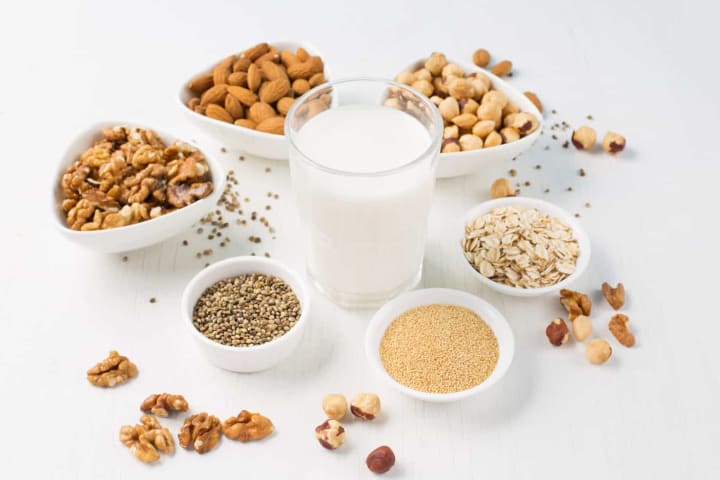
Why Plant-based Milk may be healthier for you:
Calcium: At the point when individuals hear vegan, they quickly accept that it should be challenging to acquire adequate measures of calcium because of the way that vegans keep away from all dairy items. Be that as it may, this couldn't possibly be more off-base! Getting sufficient calcium as a veggie lover is very simple, as a matter of fact. A piece of this simplicity can be credited to plant-based milks. Researchers are saying that plant milks may contain up to 50 percent more calcium than dairy milk. Calcium is an important nutrient that is known in maintaining healthy bones, teeth, nervous system, lessening tension and lowering blood pressure. In addition, the acidic nature of certain dairy products has also been reported to pull calcium from your bones, which could eventually lead to osteoporosis.
Calories: In addition to the fact that plant-based milks are unquestionably delicious, they are also low in calories. In their unsweetened nature, they are not as liable to cause high glucose nor are they as prone to bring about weight gain. Indeed, there are skim and fat-free milk available, even still, vegan milk might have less calories. For example, soy milk contains 26 calories for each 100 ml. In correlation, cow's milk contains 63 calories for each ml, with semi-skimmed milk containing 46 calories and skimmed milk containing 32 calories.
Sugar: The plant milks are mostly free from any sugar with some only containing the natural sugars like nuts and seeds. Conversely, cow's milk might contain somewhere in the range of 13 to 16 grams of sugar in a single cup. This high sugar content is because of the way that dairy milk contains a characteristic sugar known as lactose. It has been known to be the reason for a few substantial issues including stomach related issues, sensitivities and some of the time even glucose issues. The lower levels of sugar in plant milks might be a lot kinder to your glucose levels. At times, certain plant milks may even lower your body's glucose levels.
Digestion: Plant milks might be a great addition to your eating regimen on the off chance that you're searching for something that will assist with improving your digestion. Dairy milk has for quite some time been related with stomach related issues, particularly because of the lactose that is available in it. The condition is known as lactose intolerance, an illness that, incredibly, is said to affect almost 75% of the total populace. For those that experience the ill effects of lactose intolerance or even a delicate stomach, dumping dairy and attempting plant-based milk might be the better choice for you.
Some popular Plant-based Milks are:
Soy Milk, Almond Milk, Coconut Milk, Oat Milk, Cashew Milk, Hemp Milk, Walnut Milk, Rice Milk, Brazil Nut Milk, Chia Seed Milk and much more.
Soy Milk: is the well known classic vegan alternative that has been around for quite a while. Of all the plant milks, soy milk might look like cow's milk nearest in terms of nutritional content. It is low in calories and it is an extraordinary source of both protein and calcium.
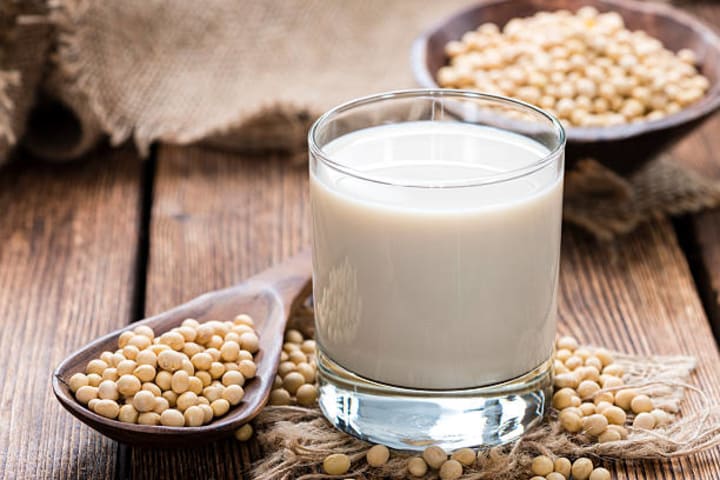
To make soy milk:
- Soak 1 cup of soybeans overnight in water.
- After soaking, drain and rinse thoroughly.
- Place the drained soybeans in a high-speed blender with 1.5 cups of water and blend till smooth.
- Strain the milk through cheesecloth.
Almond milk: is undoubtedly the most popular plant-based milk. It may be low in protein but it contains a great deal of nutrients and different supplements like vitamin E. Almond milk is rich in antioxidants which may help safeguard against various illnesses like cancers and coronary illness.
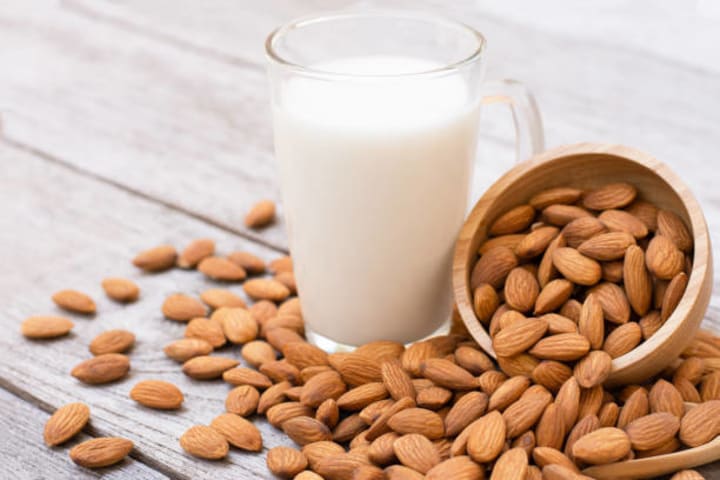
To make almond milk:
- Soak 1 cup of raw, unsalted almonds overnight in water.
- After soaking, drain and rinse thoroughly.
- Place the drained almonds in a high-speed blender with 4 cups of water and blend till smooth.
- Strain the milk through cheesecloth.
Coconut milk: is a white, smooth substance separated from the tissue of mature coconuts. It can be useful and beneficial in more than one way, like to aid in weight loss and reduce high cholesterol. It can also add flavor to sweet and exotic dishes and act as an alternative to dairy milk.
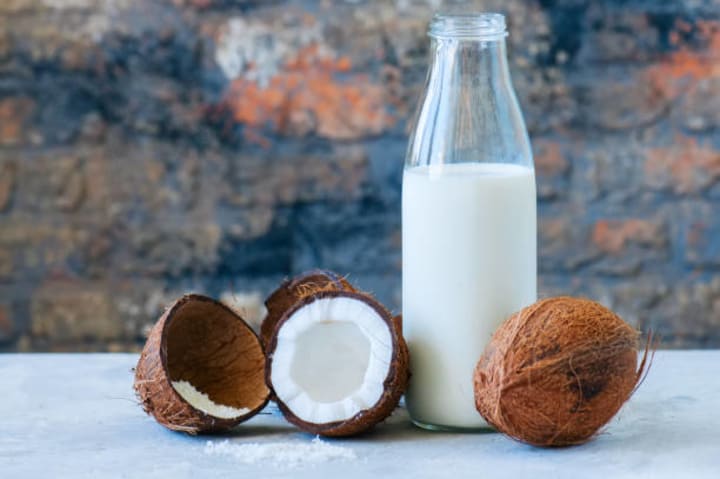
To make coconut milk:
- Soak 1 cup of chopped coconut overnight in water.
- After soaking, drain and rinse thoroughly.
- Place the drained coconut chips in a high-speed blender with 2 cups of water and blend until smooth.
- Strain the milk through cheesecloth.
Oat milk: is very light and has a gentle, somewhat sweet flavor. It has the most fiber compared with other milks. Fiber is significant in a well balanced meal plan to assist with proper digestion and also aids in maintaining proper cholesterol levels.
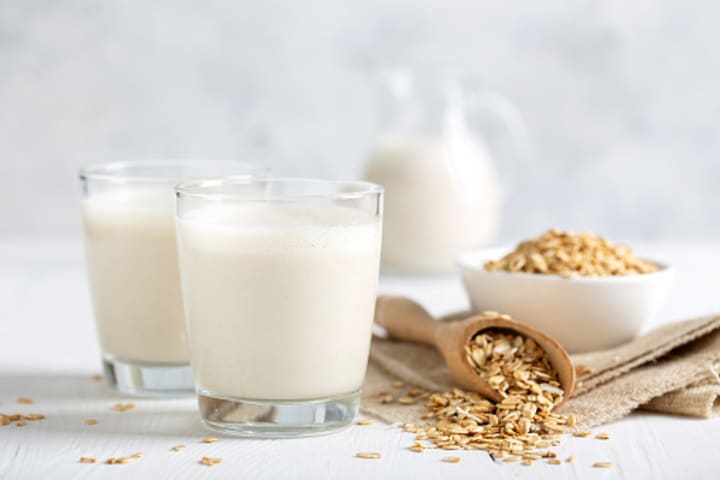
To make oat milk:
- Soak 1 cup of rolled oats (not instant/quick cooking) overnight in just enough water to cover the oats.
- In the morning, rinse the soaked oats thoroughly – the soaking liquid will feel a little slimy, so you want to get rid of the excess starch.
- Once the soaked oats are rinsed and drained, add to a blender with 1 cup of water and blend until smooth.
- Drain the blended oat mixture through a cheesecloth and set aside.
- Take the remaining oat pulp that it’s in the cheesecloth and put it back in the blender with ½ cup of water. Blend and strain once more.
- Once your oat milk is ready, you can flavour it with a pinch of salt, cinnamon, vanilla, maple syrup, agave, or anything else you fancy!
Switching to plant milk can also be useful and helpful in incorporating other plant based alternatives to your diet as the pulp of most of these plant based milks can be converted to other by products such as powders, flours and sauces.
33 Recipes for Plant-based Milks
About the Creator
Info Essential
Info Essential is a blog/vlog summarizing everyday experiences and challenges on a wide range of topics.






Comments
There are no comments for this story
Be the first to respond and start the conversation.